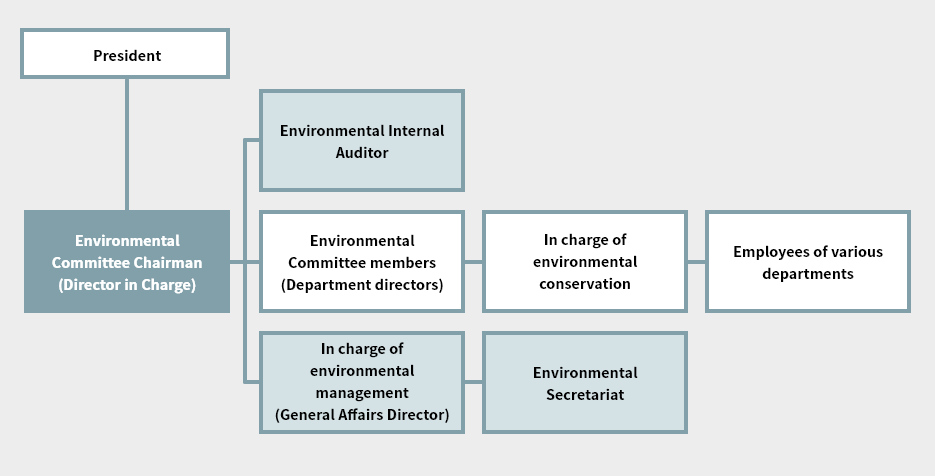GOVERNANCE
Mitsubishi Heavy Industries Thermal Systems will engage in sincere and fair business activities, and establish a practical system of corporate governance to fulfill its corporate social responsibilities.
Global Code of Conduct
Mitsubishi Heavy Industries Thermal Systems' code of conduct is based on the MHI Group Global Code of Conduct. MHI Group is a group of global companies consisting of tens of thousands of employees of diverse career backgrounds, nationalities and cultures. This diversity is one of our biggest strengths, but at the same time, there is a need for us to operate our businesses under a shared corporate culture. Our code of conduct stipulates how all employees of MHI Group are required to behave.
Compliance

Mitsubishi Heavy Industries Thermal Systems has laid down a compliance message and the MHI Group Global Code of
Conduct to be shared within the entire group, and strives to educate each and every employee through e-learning
and the distribution of manuals.
Furthermore, e-learning programs are offered to raise awareness for strict adherence to various laws and
ordinances among our employees, including those of domestic and international group companies.
Compliance Promoting System

Quality

Mitsubishi Heavy Industries Thermal Systems provides products, such as air-conditioners, centrifugal chillers and truck refrigeration units throughout the world. Prioritizing the safety and quality of these products, the company has established a QMS (quality management system) to meet the needs of customers and markets based on ISO9001 standards, in addition to individual third party certifications. Furthermore, education programs on safety and quality are provided to prevent product accidents.
Implementing of risk management placing highest priority on customer safety through safety designs and inspections based on design operation management principles
Mitsubishi Heavy Industries Thermal Systems acquired ISO9001 certification in 1994, and strives to ensure the
safety of air-conditioning products through the laying down of design operation management principles for
designing and developing products based on a quality management system. A check sheet based on these standards is
used when developing products to carry out a variety of safety inspections to make sure products do not harm
people or assets through fires, explosions or toxic substances at any stage of their lifecycles, from development
to use and disposal.
In the event of products causing serious accidents after being launched onto the market, the company implements
immediate measures to ensure customer safety, and quickly takes steps to verify the facts, analyze and clarify the
causes, and take corrective measures, while also reporting incidents to government agencies and disclosing
information to users and the market.
Based on the product safety policy described above, users were offered free inspections and repairs of "BEAVER"
air-conditioners in January 2018. The lessons learned from this experience were shared internally, including
companies overseas, and we will strive to prevent a recurrence, while fostering a corporate culture of placing
highest priority on product safety.
Quality Policy
To provide air-conditioning and refrigeration products that satisfy customers:
- We will develop products that satisfy customers
- We will adhere to prescribed procedures in carrying out work to ensure the production of products that satisfy customers
- Products that satisfy customers refer to "products with performance, functions and reliability that satisfy customers, and ensure peace of mind during use."
Environmental management system

Mitsubishi Heavy Industries Thermal Systems adheres to the Basic Policy on Environmental Matters and Action Guidelines are founded, and engages in environmental initiatives through dialog with suppliers and other stakeholders. In carrying out operations, the company is aware of its responsibilities as a member of society, and works to mitigate the environmental burden of business activities in all sectors in contributing to the realization of a sustainable society.
Environmental Committee organizational chart




